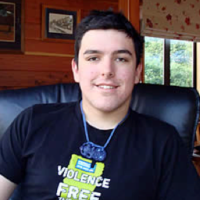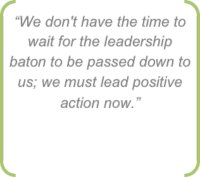

Johny O’Donnell
Johny O’Donnell is a young voice who knows how to turn his words into action. Johny, who hails from Motueka, dropped out of school at age 16 and threw himself into a range of projects that aim to make a difference to the lives of young New Zealanders. He is a founder of Students Against Violence Everywhere (SAVE) and YOUTHinc, and has been a National Ambassador for the New Zealand White Ribbon Day Campaign. Johny now works as an eBusiness Consultant and continues to be a speaker, facilitator and coach for youth engagement.
What do you think it means to be a New Zealander in the 21st century?
From throughout New Zealand history we can unearth a number of significant achievements and positive aspects to our culture to drive us forward into the future. But we also need to unearth and acknowledge the mistakes and wrongdoings of our forebears.
New Zealand can be proud of its leadership achievements on the world stage, such as being the first country to give women the vote and declaring our country nuclear free. We can comfortably acknowledge our strengths as a country and utilise these in the challenges we face ahead. New Zealand today is a multi-cultural, diverse and rapidly changing society.
What do you think are the major issues facing youth today and in the next 20 years?
Climate change is undeniably the biggest issue of our time, but we can’t just look at climate change as a single issue. Our generation is being smacked in the face with a world crisis at crunch point – environmentally, socially and financially.
We have a financial system that has allowed individuals and governments to accumulate huge amounts of debt insidiously, to burden future generations.
We have an environment that has been exploited in the name of financial gain for centuries, leaving us reliant on resources that are running out by the day.
And socially we are seeing a rise in negative statistics across the board – dramatically increasing violence, mental health issues, drug and alcohol abuse, and anti-social behaviour among all groups of citizens.
More than ever before, it is crucial that young people are around the decisionmaking tables influencing decisions for a better tomorrow. We don’t have the time to wait for the leadership baton to be passed down to us; we must lead positive action now.
Why do you think youth should vote?
It’s crucial young people turn out to vote. I’m a huge advocate for lowering the voting age to 16, but we are a few hurdles away from that given that such a low percentage of young people vote currently. Interestingly, the recent London riots depict to me more clearly than ever why young people should vote and make their voices heard; when young people become so disengaged and isolated by the democratic system, they lose out in a major way. In London we saw young people who are struggling under a political regime that is making it harder for them to get by and in my opinion robbing them of their hope for the future. Most importantly, it made it clear that as young people we care about our future and the current decisions we are making – going against the stereotype of our so-called ‘ideological’ generation that only cares about Facebook and what’s on TV.
Why do you think it is important for youth to engage with the referendum?
MMP has brought more ‘young’ people into Parliament than ever; it increases diverse representation in our parliamentary system. MMP is our best opportunity in a generation to achieve greater representation for young people and, hopefully, better decisions for our future in consequence. Often we forget that not everyone is pro diverse representation, and the thought of returning to a system dominated by the stereotypical old white male may be quite appealing to some people. For this reason we need to engage and participate in this year’s referendum to protect our democratic system.

